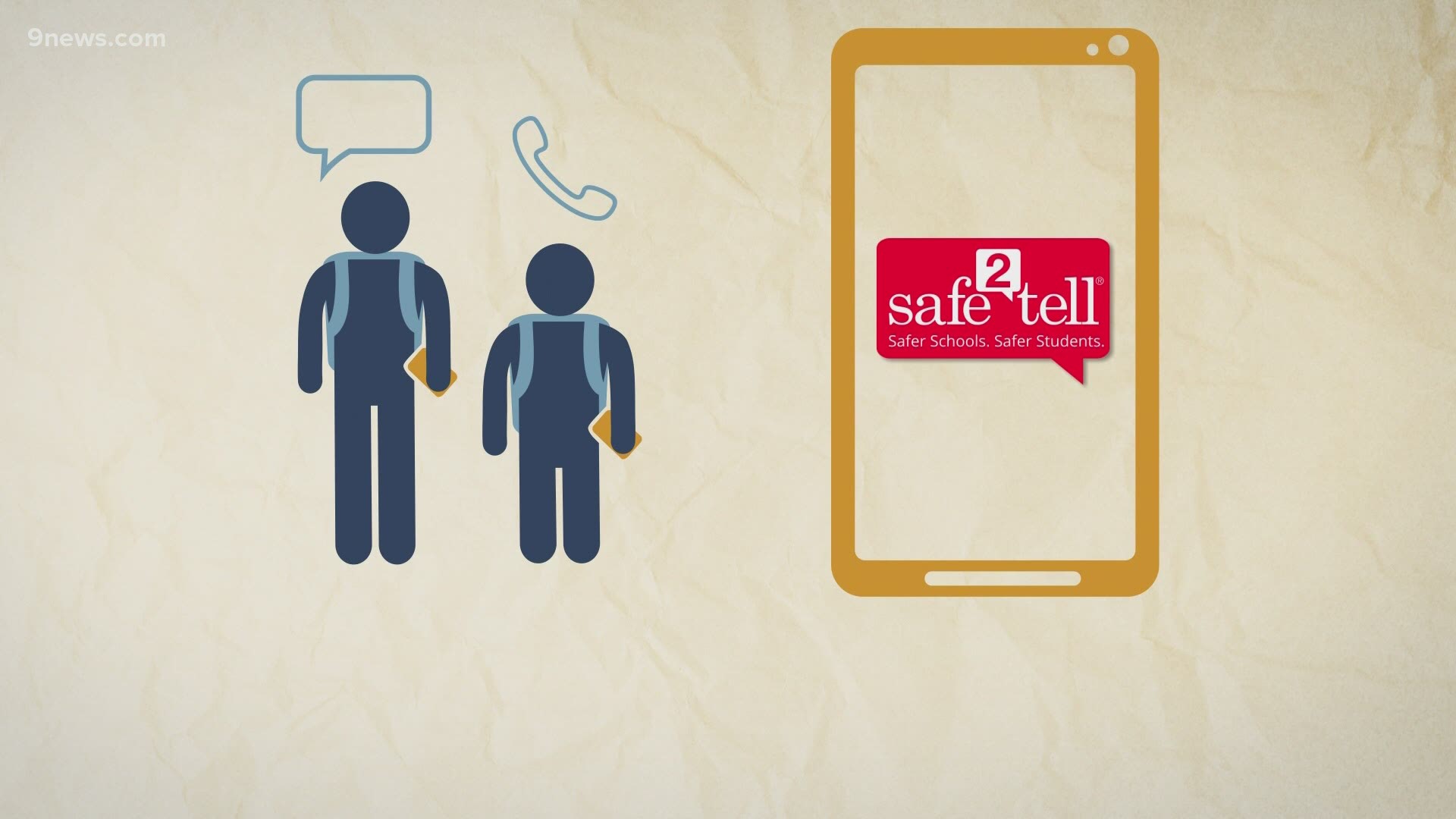COLORADO, USA — Safe2Tell said they have seen an increase in cyber-bullying calls since students moved to at-home learning.
Officials said while overall calls have been up this school year, calls in the month of April were down sharply.
In April, Safe2Tell received 930 total calls. That's down 67% in comparison to April 2019.
Suicide threats, welfare checks and cyber-bullying were the top three most- reported tips in April.
Welfare checks and cyber-bullying moved into the second and third most-reported tips they received, respectively. The previous months' most-reported tips were bullying and drugs.
Welfare checks are usually reports that express concern about a friend or classmate. They can be suicide-related or just general concern for someone’s safety. These tips may result in local law enforcement going to the home to do a welfare check.
“We want parents to know that cyberbullying — bullying that takes place online — is an important concern for students and community members submitting reports to Safe2Tell,” said Attorney General Phil Weiser. “As we have all adjusted to having our kids home during school hours, safety concerns have shifted."
Safe2Tell is a violence intervention and prevention program for students to anonymously report threats to safety, according to the Attorney General's office, which runs the program. This is the 15th year for Safe2Tell.
To date for the 2019-2020 school year, the program has received 18,685 tips, a 3% increase over the 2018-2019 school year.
Also in April, Safe2Tell administrators said they received tips of businesses or people not properly socially distancing. They want to remind people that Safe2Tell is not to be used for those type of calls.
To make a report, people can call 1-877-542-7233 from anywhere at anytime. Reports also can be made at Safe2Tell.org or through the Safe2Tell mobile app.
SUGGESTED VIDEOS: It Takes A Village

